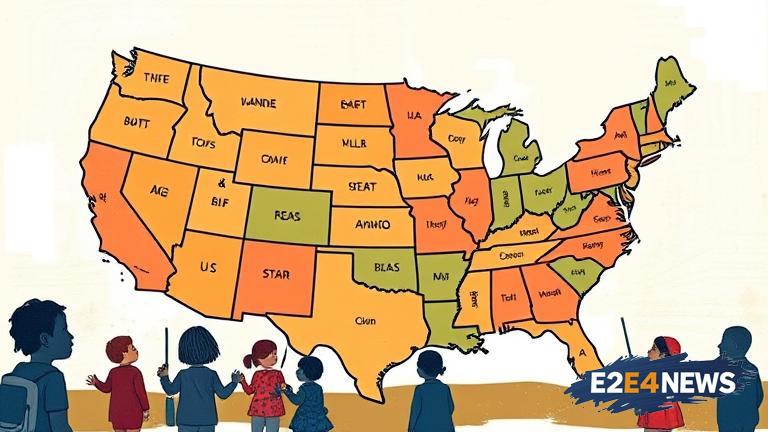The Head Start program, which has been in operation for over five decades, has been a vital resource for disadvantaged children in the United States. However, the recent changes to the country’s immigration policy have sparked controversy over the eligibility of immigrant children for the program. According to the new policy, immigrant families who are in the process of obtaining a green card or are currently undocumented will no longer be eligible for the Head Start program. This decision has been met with widespread criticism from advocacy groups and lawmakers, who argue that it will disproportionately affect low-income immigrant families who rely on the program to provide their children with a quality education. The Head Start program has been shown to have a positive impact on the cognitive and social development of young children, and many argue that it is essential for bridging the educational gap between disadvantaged and affluent communities. The new policy has also raised concerns about the potential consequences for the health and well-being of immigrant children, who may no longer have access to the program’s comprehensive services, including nutrition, health, and mental health support. Furthermore, the policy change has been criticized for being discriminatory and punitive, as it targets a specific group of people based on their immigration status. Many argue that the policy is not only unfair but also counterproductive, as it will ultimately harm the very children it is intended to help. The controversy surrounding the Head Start program has also highlighted the need for a more comprehensive and inclusive approach to immigration policy, one that takes into account the complex needs and circumstances of immigrant families. In response to the criticism, the US government has argued that the policy change is necessary to ensure that the program is being used by those who are eligible and to prevent abuse of the system. However, many argue that this justification is unfounded and that the policy change is simply a reflection of the current administration’s hardline stance on immigration. The debate over the Head Start program has also sparked a wider conversation about the role of immigration policy in shaping the lives of immigrant families and the importance of providing support and resources to those who need them most. As the controversy continues to unfold, it remains to be seen how the policy change will ultimately impact the lives of immigrant children and families. The US government has been urged to reconsider the policy change and to work towards finding a solution that balances the need to ensure program integrity with the need to provide support and resources to vulnerable populations. Ultimately, the fate of the Head Start program and the immigrant children it serves will depend on the ability of lawmakers and advocacy groups to come together and find a solution that prioritizes the needs and well-being of all children, regardless of their immigration status. The controversy has also raised questions about the long-term consequences of the policy change and how it will affect the social and economic mobility of immigrant families. Additionally, the policy change has been criticized for being inconsistent with the values of inclusivity and diversity that are central to American society. The US government has been accused of using the policy change as a way to advance a broader agenda of immigration restriction and enforcement, rather than prioritizing the needs and well-being of immigrant children and families.
